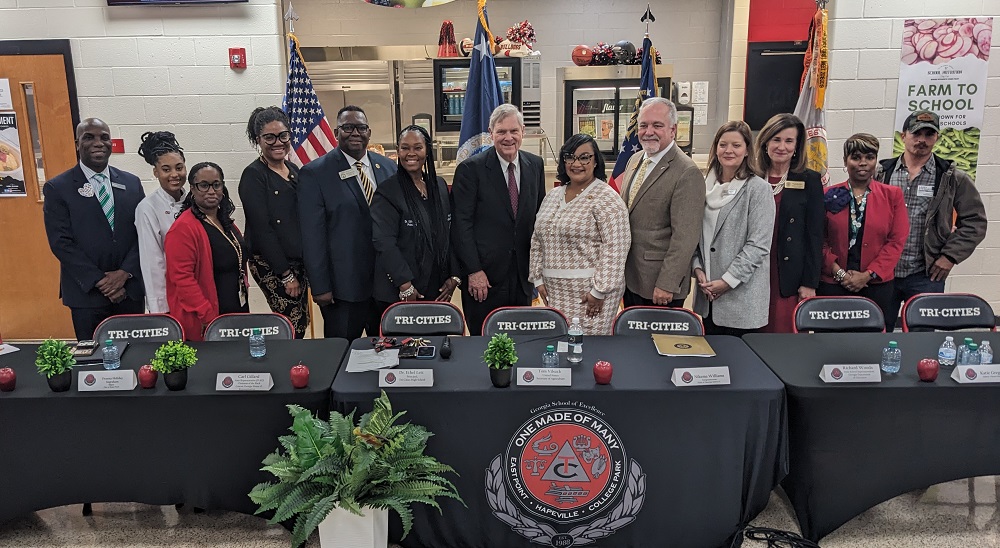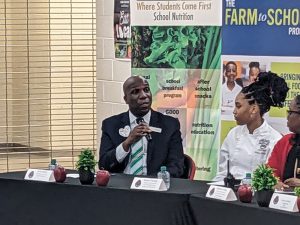
In January, Federal Secretary of Agriculture Tom Vilsack and U.S. Rep Nikema Williams, among other notable participants, held a press conference at Tri Cities High School about an extremely important topic: maintaining and expanding summer food programs for school children.
As a proud member of the local food movement, Wholesome Wave Georgia (WWG) was honored to be the only Georgia nonprofit to speak at the press conference about a cause that resonates deeply with WWG’s mission.
Throughout the conference, speakers emphasized the significance of year-round school meal programs in ensuring children have access to nutritious food, especially during vulnerable periods like school breaks.
Dr. Liennte Dodson of the Georgia Department of Education shed light on the staggering scale of impact, saying, “Last summer we served nearly 6 million meals during the summer.”

Will Sellers speaks at the USDA press conference about the importance of fresh, healthy, local food.
These numbers exemplify the impact that concerted efforts can make to ensure that children have access to the nourishment they need, regardless of the season. This aligns perfectly with WWG’s commitment to increasing food accessibility and addressing food insecurity in Georgia.
“1 out of 8 children in the state of Georgia are food insecure,” said WWG Executive Director Will Sellers. “When we talk about nutrition insecurity, that number goes even higher.”
The conversation also spotlighted the benefit of these programs to local farmers, underscoring how initiatives like summer EBT programs and farm-to-school partnerships benefit not only children, but also the wider community and economy.
“Words can’t encapsulate how beneficial the local farm to school business has been for our farm,” said Larry Stewart of Hunter Cattle. “Retailers and restaurants go out of business or switch suppliers but schools are consistent.”
Steward also mentioned that the programs enable the farm to maintain full employment year round, take more risk, take loans out to get better equipment, and increase wages.
By supporting local farmers and empowering families with access to fresh produce, WWG continues to be a driving force in creating a future where no child goes hungry. As we reflect on the insights shared during the USDA conference, let us remember that nourishing our communities require collaboration, compassion, and unwavering commitment. Together, we can build a brighter, healthier Georgia.
You can read more about the press conference from the AJC, here.



